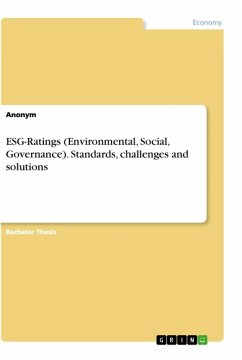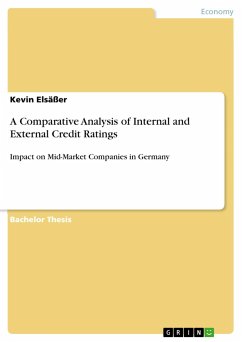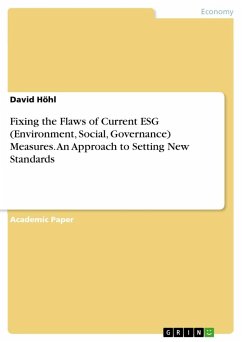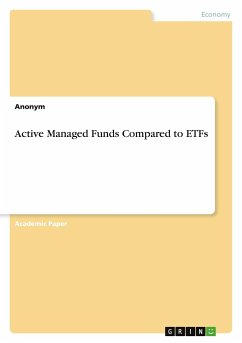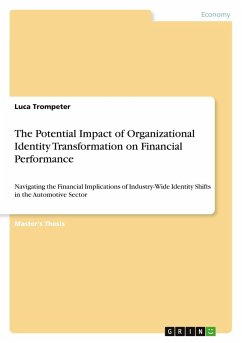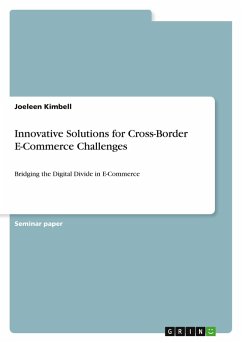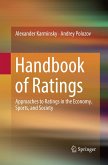Bachelor Thesis from the year 2021 in the subject Business economics - Investment and Finance, grade: 1,7, University of applied sciences Frankfurt a. M., language: English, abstract: This bachelor thesis examines the challenges of ESG ratings and attempts to find a solution to these explored challenges. To answer this question, a theoretical definition of ESG and SRI is given first, followed by a discussion of ratings' theoretical background, standards, and rating agencies' traditional procedures. The classic challenges of ratings are also considered. The differences to ESG ratings are then discussed, and sustainability ratings and sustainability rating agencies are examined. In the following part, the individual challenges of ESG ratings discussed theoretically are described. After the theoretical foundations, the challenges are clarified in an analysis. The analysis refers to two different industries. Based on the results, possible solutions are proposed and discussed. A conclusion is followed. Sustainability has been a highly debated topic for a long time. Waste separation, the purchase of regional food, electricity supply options and the fight against plastic waste are indispensable topics for society. The matter has not yet played such a significant role in financial investments, but interest is growing. Millennials are open to sustainable investments. This area of interest is shown by a representative YouGov study commissioned by the fund company Deka. Nevertheless, only six per cent of investors own sustainable investments. This occurrence is maybe because the topic is complex for investors to grasp. There is even a lack of a generally valid definition of sustainability. There are indeed several quality seals that make orientation easier, but there are no standards. The EU Commission wants to change that and is working on critical criteria for sustainable investments, but it will be some time before these are fully implemented throughout the EU.
Hinweis: Dieser Artikel kann nur an eine deutsche Lieferadresse ausgeliefert werden.
Hinweis: Dieser Artikel kann nur an eine deutsche Lieferadresse ausgeliefert werden.

